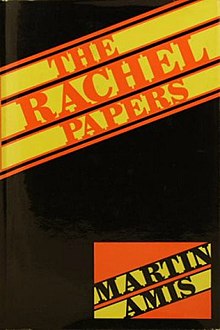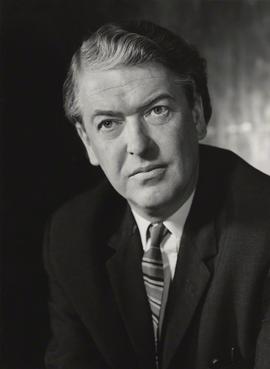
Sir Kingsley William Amis was an English novelist, poet, critic and teacher. He wrote more than 20 novels, six volumes of poetry, a memoir, short stories, radio and television scripts, and works of social and literary criticism. He is best known for satirical comedies such as Lucky Jim (1954), One Fat Englishman (1963), Ending Up (1974), Jake's Thing (1978) and The Old Devils (1986).

Saul Bellow was a Canadian–American writer. For his literary work, Bellow was awarded the Pulitzer Prize, the 1976 Nobel Prize in Literature, and the National Medal of Arts. He is the only writer to win the National Book Award for Fiction three times, and he received the National Book Foundation's lifetime Medal for Distinguished Contribution to American Letters in 1990.

Edward Morgan Forster was an English author, best known for his novels, particularly A Room with a View (1908), Howards End (1910) and A Passage to India (1924).
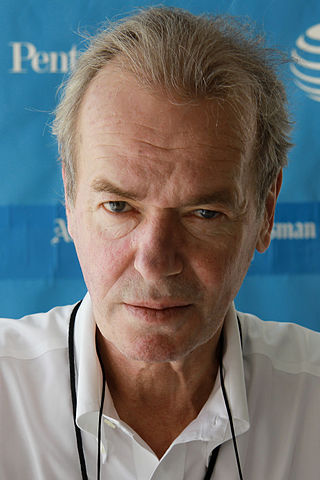
Sir Martin Louis Amis was an English novelist, essayist, memoirist, and screenwriter. He is best known for his novels Money (1984) and London Fields (1989). He received the James Tait Black Memorial Prize for his memoir Experience and was twice listed for the Booker Prize. Amis was a professor of creative writing at the University of Manchester's Centre for New Writing from 2007 until 2011. In 2008, The Times named him one of the 50 greatest British writers since 1945.

The English novel is an important part of English literature. This article mainly concerns novels, written in English, by novelists who were born or have spent a significant part of their lives in England, Scotland, Wales, or Northern Ireland. However, given the nature of the subject, this guideline has been applied with common sense, and reference is made to novels in other languages or novelists who are not primarily British, where appropriate.

Ian Russell McEwan is a British novelist and screenwriter. In 2008, The Times featured him on its list of "The 50 greatest British writers since 1945" and The Daily Telegraph ranked him number 19 in its list of the "100 most powerful people in British culture".

Sebastian Charles Faulks is a British novelist, journalist and broadcaster. He is best known for his historical novels set in France – The Girl at the Lion d'Or, Birdsong and Charlotte Gray. He has also published novels with a contemporary setting, most recently A Week in December (2009) and Paris Echo, (2018) and a James Bond continuation novel, Devil May Care (2008), as well as a continuation of P. G. Wodehouse's Jeeves series, Jeeves and the Wedding Bells (2013). He was a team captain on BBC Radio 4 literary quiz The Write Stuff.

Colm Tóibín is an Irish novelist, short story writer, essayist, journalist, critic, playwright and poet.

London Fields is a blackly comic murder mystery novel by the British writer Martin Amis, published in 1989. The tone gradually shifts from high comedy, interspersed with deep personal introspections, to a dark sense of foreboding and eventually panic at the approach of the deadline, or "horror day", the climactic scene alluded to on the very first page.

Time's Arrow: or The Nature of the Offence (1991) is a novel by Martin Amis. It was shortlisted for the Booker Prize in 1991. It is notable partly because the events occur in a reverse chronology, with time passing in reverse and the main character becoming younger and younger during the novel.

Adam Mars-Jones is a British novelist and literary and film critic.

Money: A Suicide Note is a 1984 novel by Martin Amis. In 2005, Time included the novel in its "100 best English-language novels from 1923 to the present". The novel is based on Amis's experience as a script writer on the feature film Saturn 3, a Kirk Douglas vehicle. The novel was dramatised by the BBC in 2010.
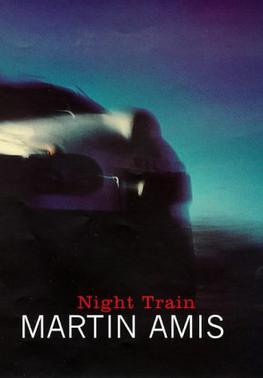
Night Train (1997) is a comedic parody of American detective novels by the author Martin Amis, named after the song "Night Train", which features twice in the novel.

The Information is a 1995 novel by British writer Martin Amis. The plot involves two forty-year-old novelists, Gwyn Barry (successful) and Richard Tull. Amis has asserted that both characters are based on himself. It is, says Amis, a book about "literary enmity".

Other People: A Mystery Story is a novel by British writer Martin Amis, published in 1981.

Dead Babies is Martin Amis's second novel, published in 1975 by Jonathan Cape. Its first UK and US paperback edition was published under the title Dark Secrets. Amis's second novel—a parody of Agatha Christie's country-house mysteries—takes place over a single weekend at a manor called Appleseed Rectory. In 2000, the book was adapted into a film of the same name, starring Paul Bettany and Olivia Williams. In 2001, BBC critic David Wood wrote "Amis's second novel ranks among his most incendiary with its mordant wit, black comedy, and sense of the violently absurd." It has an epigraph attributed to the Cynic Menippus and the novel has been interpreted as a Menippean satire.
Throughout the life of the poet Philip Larkin, multiple women had important roles which were significant influences on his poetry. Since Larkin's death in 1985, biographers have highlighted the importance of female relationships on Larkin: when Andrew Motion's biography was serialised in The Independent in 1993, the second installment of extracts was dedicated to the topic. In 1999, Ben Brown's play Larkin with Women dramatised Larkin's relationships with three of his lovers, and more recently writers such as Martin Amis, continued to comment on this subject.
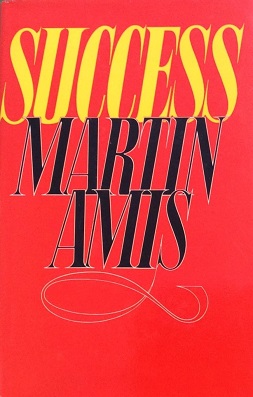
Success is Martin Amis's third novel, published in 1978 by Jonathan Cape.
A novelist is an author or writer of novels, though often novelists also write in other genres of both fiction and non-fiction. Some novelists are professional novelists, thus make a living writing novels and other fiction, while others aspire to support themselves in this way or write as an avocation. Most novelists struggle to have their debut novel published, but once published they often continue to be published, although very few become literary celebrities, thus gaining prestige or a considerable income from their work.

Lemmons, also known as Gladsmuir and Gladsmuir House, was the home of novelists Kingsley Amis (1922–1995) and Elizabeth Jane Howard (1923–2014) on the south side of Hadley Common, Barnet, on the border of north London and Hertfordshire.
